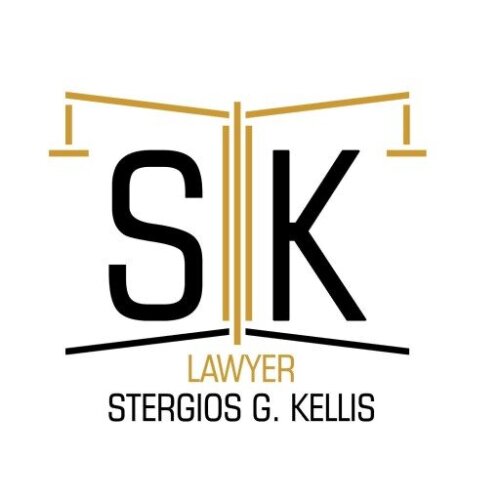Best Project Finance Lawyers in Xanthi
Share your needs with us, get contacted by law firms.
Free. Takes 2 min.
List of the best lawyers in Xanthi, Greece
About Project Finance Law in Xanthi, Greece
Project finance is a method of funding large infrastructure and development projects - such as renewable energy plants, roads, water treatment facilities, and public-private partnership projects - where lending and investment are based primarily on the projected cash flows of the project rather than the balance sheets of sponsors. In Xanthi, a regional city in northeastern Greece, project finance work often focuses on energy projects, agribusiness processing, transport and local infrastructure improvements. Legal advice in this field combines national Greek law, European Union law, sector-specific regulation and local permitting and planning rules in the Region of Eastern Macedonia and Thrace and the Municipality of Xanthi.
Why You May Need a Lawyer
Project finance transactions are complex and high-value. A specialized lawyer helps protect your interests, manage legal risk and streamline closing. Common situations where you may need project finance legal help include:
- Structuring the deal - choosing the right vehicle, such as a special purpose vehicle (SPV), and allocating risk among sponsors, lenders and contractors.
- Drafting and negotiating financing documents - loan agreements, security agreements, guarantees and intercreditor arrangements.
- Reviewing and negotiating project contracts - power purchase agreements, concession or offtake contracts, engineering-procurement-construction (EPC) contracts and operations and maintenance (O&M) agreements.
- Regulatory compliance - obtaining permits, licenses and grid connections; ensuring compliance with environmental, planning and sector-specific rules.
- Due diligence - title and cadastral checks, environmental due diligence, corporate and tax due diligence.
- Security and enforcement - creating and registering collateral - including pledges, mortgages and assignments - and advising on enforcement processes in Greece.
- Public procurement and PPPs - advising public authorities or private bidders on procurement rules, concession processes and subsidy conditions.
- Dispute prevention and resolution - drafting dispute resolution clauses and representing clients in arbitration or local courts if disagreements arise.
Local Laws Overview
Project finance in Xanthi is governed by a combination of national, EU and local rules. Key legal aspects to expect include:
- Corporate and SPV law - Greek company law governs the formation and operation of the SPV that usually carries the project. Corporate governance, shareholder agreements and capital structure are important early considerations.
- Contract law - project contracts must comply with Greek contract rules and may be governed by bespoke arrangements reflecting international standards and lender requirements.
- Public procurement and PPP regime - procurement rules and concession frameworks apply where public assets or public funding are involved. EU public procurement directives are transposed into Greek law and apply to many public contracts.
- Energy sector regulation - for energy projects you must follow licensing, grid connection and market rules set by the national energy regulator. Renewable energy projects have additional permit and grid access requirements.
- Environmental and permitting law - projects typically require environmental permits or assessments under both Greek and EU law. Environmental impact assessments and licensing processes are handled by regional authorities and national ministries depending on project type and size.
- Land use, planning and cadastre - municipal and regional zoning rules control permitted uses and building permits. Title and cadastral documentation must be checked carefully; the Hellenic Cadastre records property rights across Greece.
- Security interests and enforcement - Greek law provides mechanisms for pledges, mortgages and assignments as security for lenders. Registration and perfection requirements are critical for enforceability.
- Tax and incentives - national tax law and investment incentive programs affect project viability. Incentives or grants may be available through national or EU funding programs.
- Competition, state aid and public funding - projects that receive public support must comply with state aid rules and EU competition law.
- Dispute resolution - Greek courts hear many litigation matters, but arbitration is commonly used in international project agreements. Choice of law and jurisdiction clauses should be negotiated early.
Frequently Asked Questions
What is project finance and how does it differ from corporate finance?
Project finance funds a specific project through a purpose-built SPV whose assets and cash flows secure the financing. Corporate finance relies on the sponsor companys balance sheet. Project finance isolates project risk and often involves non-recourse or limited-recourse lending.
Can a foreign investor develop a project in Xanthi?
Yes - Greece welcomes foreign investment. Foreign investors generally follow the same rules as domestic investors for permits, company formation and licensing. Specific sectors may have additional approvals. Lawyers help navigate registration, tax and regulatory obligations.
Which permits are usually required for an energy project in Xanthi?
Typical permits include environmental approvals or an environmental impact assessment, a construction permit, grid connection agreements and operating licenses required by the energy regulator. Local zoning and land permits from the municipality are also required.
How long does the permitting and approval process usually take?
Timelines vary widely by project type and complexity - from several months for small permits to 12-24 months or more for large projects requiring detailed EIAs, public consultations and grid upgrades. Early legal and technical planning can reduce delays.
What types of security do lenders seek in Greece?
Lenders commonly take pledges of shares in the SPV, pledges over project accounts and receivables, mortgages over real estate, assignments of contracts and rights, and guarantees from sponsors. Proper registration and perfection are critical for enforcement.
Are public-private partnerships common in the region?
PPPs and concessions are used for infrastructure, energy and public service projects in Greece. They require careful compliance with public procurement and concession laws, and legal advice is important whether you are a public authority or private bidder.
What are typical legal costs and who pays them?
Costs depend on transaction size and complexity. Legal fees can be charged as fixed fees for specific tasks, hourly rates or success-fees in some cases. Parties negotiate who pays certain counsel - sponsors usually pay sponsor counsel, lenders pay lender counsel, and negotiation determines shared costs.
How are disputes in project agreements usually resolved?
Many project agreements use arbitration because it offers neutrality and specialized tribunals. Domestic litigation in Greek courts is another route. Agreements commonly contain escalation procedures and expert determination clauses for technical disputes.
What are common risks in project finance and how are they allocated?
Common risks include construction delays, cost overruns, regulatory changes, permit refusals, force majeure events and offtake default. Contracts allocate risk among parties - e.g. EPC contractors assume construction risk, lenders focus on security and covenant structures, sponsors may support certain guarantees.
How do I find the right lawyer in Xanthi for project finance work?
Look for lawyers with project finance, energy or infrastructure experience - ideally with experience in Greek and EU regulatory frameworks. Ask about past deals, team composition, fee structure and availability. Local knowledge of the Xanthi municipality, regional permitting procedures and Hellenic Cadastre issues is valuable.
Additional Resources
Useful institutions and bodies to consult during project development in Xanthi include:
- The Municipality of Xanthi and the Region of Eastern Macedonia and Thrace - for local permits, zoning and planning guidance.
- Hellenic Cadastre - for title registration and property documentation.
- Ministry of Environment and Energy - for environmental policy and permitting frameworks.
- Regulatory Authority for Energy - for energy licensing and grid connection rules.
- Ministry of Development and Investment - for investment incentives and public procurement guidance.
- Hellenic Development Bank and national funding bodies - for financing and guarantee schemes.
- Local Chamber of Commerce - for business contacts and local market insight.
- Xanthi Bar Association - for referrals to qualified local lawyers and professional standards.
- Bank of Greece and commercial banks active in project finance - for lending conditions and market practices.
- European Investment Bank and EU structural funds programs - for co-financing and grant opportunities under regional development programs.
Next Steps
If you need legal assistance for a project finance matter in Xanthi, follow these practical steps:
- Gather core documents - project concept, feasibility study, land titles, any existing contracts, technical reports and draft commercial terms.
- Schedule an initial consultation with a specialist project finance lawyer - ask for a clear scope, team members and fee estimate.
- Conduct legal due diligence - title and cadastral checks, environmental screening, corporate and tax reviews, and review of any public procurement or concession constraints.
- Develop a transaction roadmap - define milestones, regulatory approvals, financing timeline and contingency plans.
- Engage technical and financial advisors as needed - lenders typically require independent engineers and financial models.
- Negotiate a term sheet or heads of terms - clarify risk allocation, security package and key commercial points before detailed documentation.
- Prepare permitting applications early - start environmental and planning approvals to avoid delaying financing and construction.
- Consider dispute resolution, governing law and insurance - make these choices early in contract negotiations.
- Keep communication open with local authorities and stakeholders - community and municipal engagement can prevent objections and delays.
Working with an experienced local lawyer who understands both national rules and Xanthis municipal practices will help you move your project forward with confidence and reduce legal and regulatory risk.
Lawzana helps you find the best lawyers and law firms in Xanthi through a curated and pre-screened list of qualified legal professionals. Our platform offers rankings and detailed profiles of attorneys and law firms, allowing you to compare based on practice areas, including Project Finance, experience, and client feedback.
Each profile includes a description of the firm's areas of practice, client reviews, team members and partners, year of establishment, spoken languages, office locations, contact information, social media presence, and any published articles or resources. Most firms on our platform speak English and are experienced in both local and international legal matters.
Get a quote from top-rated law firms in Xanthi, Greece — quickly, securely, and without unnecessary hassle.
Disclaimer:
The information provided on this page is for general informational purposes only and does not constitute legal advice. While we strive to ensure the accuracy and relevance of the content, legal information may change over time, and interpretations of the law can vary. You should always consult with a qualified legal professional for advice specific to your situation.
We disclaim all liability for actions taken or not taken based on the content of this page. If you believe any information is incorrect or outdated, please contact us, and we will review and update it where appropriate.










